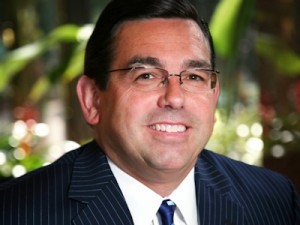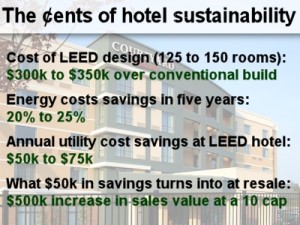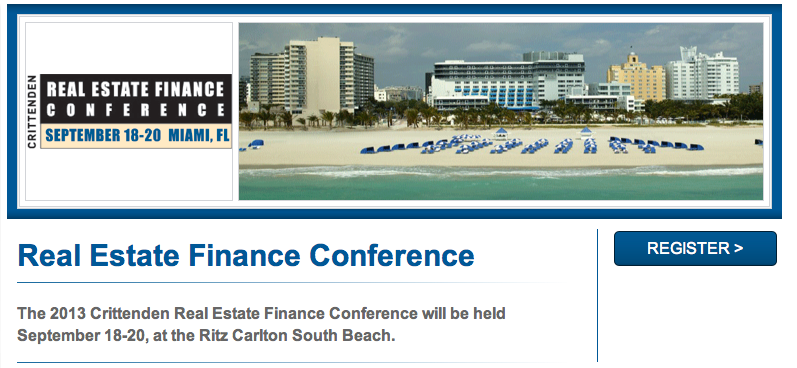Developers vying for shot at old City Hall land
Newport City Council expected to vote on one of three proposals — two hotel projects and a mixed-use residential development.

Sonnenblick Development proposed a 148-room high-end luxury hotel, with 15 townhouse suites and 12 free-standing villas. The hotel would also include underground parking, along with other amenities. (Courtesy Sonnenblick Development / Daily Pilot / July 5, 2013)
By Jill Cowan
http://www.dailypilot.com/news/tn-dpt-me-0706-city-hall-reuse-20130703,0,7623946.story
July 5, 2013 | 8:08 p.m.
The morning was chilly, the marine layer still firmly blanketing the Balboa Peninsula.
“This is Ground Zero for what people think about as Newport Beach,” said longtime resident and developer Bob Olson.
The grounds of Newport Beach’s now-vacant former City Hall didn’t look like much. A remote religious shrine tucked in the wilds of Thailand might have had more visitors at that moment.
But Olson, looking at what for decades had served as the city’s civic core, along Newport Boulevard, saw a unique 130-room hotel, complete with a spa, rooftop bar and upscale dining options, built in a style that would pay tribute to the community’s nautical history.
On Tuesday, from the still glitteringly new confines of a much different City Hall near Newport Center, the Newport Beach City Council will consider whether to accept a staff recommendation and move forward with Olson’s vision or choose one of two other proposals for the 4.3-acre site. At the 7 p.m. meeting, the public will also have one more chance to weigh in on the matter.
The Shopoff Group, which is also working with the city on the planned Uptown Newport development near John Wayne Airport, proposed a mixed-use residential development, with 99 units renting for an average of about $5,058 per month. The proposal also includes underground parking, along with a public plaza and 15,000 square feet of commercial space.
Sonnenblick Development proposed a luxury hotel, but at a higher price point than the one proposed by Olson’s firm, RD Olson Development. Sonnenblick’s proposed 148 rooms would go for an average daily rate of $371, versus Olson’s $279. The proposed Sonnenblick hotel, which would include about a dozen each of townhouse suites and free-standing villas, would also have a spa and rooftop bar, as well as underground parking.
According to the report, the RD Olson proposal fit best with the city’s vision of the surrounding Lido Village, architecturally and in terms of public access. Furthermore, while both hotels were projected to better stimulate activity in the area than homes, concerns about the viability of the Sonnenblick hotel because of its high price point meant the RD Olson proposal won out with staff on an economic level.
Residents and officials hope that whichever project is chosen, it will revitalize Lido Village, which has languished with vacant storefronts and little tourist traffic.
Olson said that if the Lido House Hotel — the name his firm proposed — were built, guests would spend money eating out at nearby restaurants before biking to the Balboa Fun Zone, and Newport residents would grab coffee at the hotel’s coffee shop or enjoy a night out at the hotel’s bar.
He pointed out a row of sleepy storefronts along 32nd Street.
“Guests will be coming here to experience Newport Beach, and we encourage our guests to come out and explore this area,” he said. “Let’s say your family owns this building, so they say, ‘Let’s fix it up, now that we’ve got some economic activity.'”
Although the vast majority of community members who’ve spoken on the matter have echoed that logic, pushing for a hotel over residential units, Bill Shopoff, principal of the Shopoff Group, said he saw unanswered questions in the hotel proposals, particularly with regard to bed tax projections.
According to the city’s staff report, which culled information from the companies’ respective proposals, the RD Olson hotel would generate about $1.13 million per year in tax revenue for the city and pay about $420,000 per year to the city in rent, for a total approaching $1.55 million.
All three proposals involve a 99-year lease. Other details would be negotiated with the chosen company.
The Sonnenblick hotel, similarly, was projected to generate for the city significantly more in tax revenue in a typical year, $1.59 million, than it would from its lease, which would generate about $600,000 in a year, for a total of $2.19 million.
The Shopoff complex, on the other hand, is projected to generate $230,000 in taxes during a year, while its lease is projected to generate $1.01 million in a year.
But Shopoff cautioned that the transient occupancy tax projections might be optimistic, given the many economic factors that could affect a hotel — not to mention the long planning and development process, which will require Coastal Commission input.
“I think our economics are comparable to or superior to the economics of a hotel,” Shopoff said. “If the hotel were going to be built today, I’d be more certain, but that market changes more rapidly. I don’t think the project will begin construction for several more years.”
At various public meetings about the site’s redevelopment, including an April study session on the proposals, questions about parking have arisen.
Both Shopoff and Sonnenblick proposed underground parking, though according to the staff report, building the garages would require extensive excavation, shoring and, probably, “dewatering,” because the site is so close to the ocean.
Nevertheless, Sonnenblick questioned whether the estimated 145 surface parking spots proposed by RD Olson would be enough.
“The largest difference in the proposals is that our project includes underground parking,” said Bob Sonnenblick, the firm’s principal. “And theirs, Olson’s, assumes no on-site parking at all.”
He added, “The other difference is that we’re really proposing a five-star luxury hotel … and previously the Olson group has built Courtyard by Marriott-type projects.
“The difference between those two levels of hotel quality will lead to a fairly substantial difference in hotel taxes received by the city over the course of the next 30 years.”
But Neil MacFarlane, longtime Lido Isle resident and former president of the Lido Isle Community Assn., and others have said they trust RD Olson to build a hotel and run it at viable rates.
“We think [Olson] will actually build a hotel,” he said. “He’s here to stay and he’ll operate it successfully.”
In any case, the development could be the city’s best — and last — shot at reviving Lido Village, said Hugh Helm, who spoke on behalf of the association over coffee at the Woody’s Diner just across Finley Avenue from the site.
“We’ve got our chance to do this right,” he said. “If not, we’re gonna have to live with it for a long time.”
Jill.cowan@latimes.com
Twitter: @jillcowan
Side-by-side:
RD Olson Development
Development type: Boutique hotel
Rooms: 130
Projected cost: $46.6 million
Operator: Destination Hotels & Resorts
Room rates: $279 per night on average
Public plaza and pedestrian paths: 0.68 acres
Parking: 145 spaces, surface only
Building height: Four stories and a tower at 58 feet, 5 inches
Sonnenblick Development
Development type: Boutique hotel
Rooms: 148
Projected cost: $81.8 million
Operator: Auberge Resorts
Room rates: $379 per night on average
Public plaza and pedestrian paths: 1.3 acres
Parking: 210 spaces, underground garage
Building height: Four stories at 55 feet, with a tower at 65 feet.
Shopoff Group
Units: 99
Projected cost: $61.3 million
Operator: Riverstone Property Management
Rent: $5,058 per month on average
Public plaza and pedestrian paths: 1.2 acres
Parking: 325 spaces, underground garage
Building Height: Four stories at 55 feet.
June 19, 2013

To green or not to green? That was the question and a heated topic at the recent Bisnow Lodging Investment Summit. So we polled our readers to see what you really think about sustainability and if it matters in the hotel industry.
NO: Guests want creature comforts.
The majority says that guests are not willing to spend more to stay in a sustainable hotel.
 Scoffed one respondent: “I like having clean sheets and towels—the cleaner and fresher, the better.” Another replied that it’s more about cleanliness, comfort, noise, decor, bedbugs, odor, and the attitude of staff. Instead of bamboo sheets and recycled notepaper, they want courteous service and working TVs.
Scoffed one respondent: “I like having clean sheets and towels—the cleaner and fresher, the better.” Another replied that it’s more about cleanliness, comfort, noise, decor, bedbugs, odor, and the attitude of staff. Instead of bamboo sheets and recycled notepaper, they want courteous service and working TVs.
YES: It saves money and brings resale value.
 Concord Hospitality Enterprises prez of architecture and design Tim Osiecki (which began building LEED in 2008 with Pittsburgh’s Settler’s Ridge Courtyard by Marriott) says the mere mention “causes a reflexive reach for wallets amidst protestations about ROI and guests who don’t care, don’t understand, and won’t pay for it.” (This coming from the same guests who pay $8 for coffee.) While Settler’s Ridge cost over $500k more to build, he said the annual savings exceeded the firm’s expectations. Today, the same custom LEED design would come in at less than $350k. Concord worked in tandem with Marriott to provide the design template for a LEED prototype; using it means developers can expedite the LEED design process, saving time and money.
Concord Hospitality Enterprises prez of architecture and design Tim Osiecki (which began building LEED in 2008 with Pittsburgh’s Settler’s Ridge Courtyard by Marriott) says the mere mention “causes a reflexive reach for wallets amidst protestations about ROI and guests who don’t care, don’t understand, and won’t pay for it.” (This coming from the same guests who pay $8 for coffee.) While Settler’s Ridge cost over $500k more to build, he said the annual savings exceeded the firm’s expectations. Today, the same custom LEED design would come in at less than $350k. Concord worked in tandem with Marriott to provide the design template for a LEED prototype; using it means developers can expedite the LEED design process, saving time and money.

Source: Concord Hospitality Enterprises
Here’s an idea of how Tim says Concord has been able to monetize sustainability. The firm now has a mandate to build all LEED, with $2M invested so far and another 18 hotels in its pipeline either under construction or in design, including the 182-room, $47M Cambria Suites in DC, a 196-room, $80M Cambria Suites in Midtown Manhattan, and a 258-room, $80M Hyatt House in Jersey City.
NO: It’s a short-lived trend.

Sonnenblick Development chairman Bob Sonnenblick is one developer not on board, a position people have booed him for, so he’s glad others agree. It’s not financially feasible, he argues—people often stay at hotels to relax, not pay more money for a shower that’s lower flow than the one at home. One respondent said, “It’s gone overboard… now they pay $200 or more a night and can’t get a decent stream of water.” Bob called sustainable hotels a trend that won’t have a long shelf life—two to three years max. One owner of a LEED-certified, select-service hotel responded, “the guest is only interested in the green notes in their own pockets… we’ve found clearly that the guest is not willing to pay anything more to stay in a LEED hotel.”
 Does it matter if guests are on board? The previously quoted owner-operator is still keen on sustainability “as it’s efficient to operate and therefore is a reasonable investment.” Another respondent says avoiding waste in laundry and toiletries lowers operating costs, too. (So stop stealing soap, everybody!) Kimpton is one brand well known for sustainability. In addition to its LEED Gold Hotel Palomar and LEED-certified Hotel Monaco (both in Philly), all of its hotels are Green Key certified. It uses non-toxic cleaners; serves organic and shade-grown coffee; offers special rate codes that give back to The Nature Conservancy and The Trust For Public Land; and has free or discounted parking for guests with hybrid or electric vehicles.
Does it matter if guests are on board? The previously quoted owner-operator is still keen on sustainability “as it’s efficient to operate and therefore is a reasonable investment.” Another respondent says avoiding waste in laundry and toiletries lowers operating costs, too. (So stop stealing soap, everybody!) Kimpton is one brand well known for sustainability. In addition to its LEED Gold Hotel Palomar and LEED-certified Hotel Monaco (both in Philly), all of its hotels are Green Key certified. It uses non-toxic cleaners; serves organic and shade-grown coffee; offers special rate codes that give back to The Nature Conservancy and The Trust For Public Land; and has free or discounted parking for guests with hybrid or electric vehicles.

20-Somethings Buy Largest US Ski Mountain

You may remember we wrote about “The Mountain” being purchased in Utah by Summit, whose founder, Elliott Bisnow, helped start our publication, and whose business partner, Ryan Begelman, is our new Bisnow Media CEO. (Complicated, we know.) Anyway, here’s a cool story about it from Tuesday’s Morning Edition show on NPR.
Go to Biz Now and Vote: 1) Is collecting resort fees a dirty practice?
Bob Sonnenblick isn’t only vocal about sustainability. Here’s a practice that he calls “dirty” and “unconscionable”—resort fees, or mandatory daily surcharges imposed by hotels to cover the costs of certain amenities, like Internet access and pool (even if you don’t use them). The fees often aren’t disclosed in booking prices, leading to an unexpected, much more expensive hotel stay. He says he’d like to petition lawmakers to make the practice illegal. Do you agree, or are resort fees important for the hospitality biz? Tell us by clicking the survey above.
What’s your favorite part about staying in a hotel? Tell amanda@bisnow.com.















